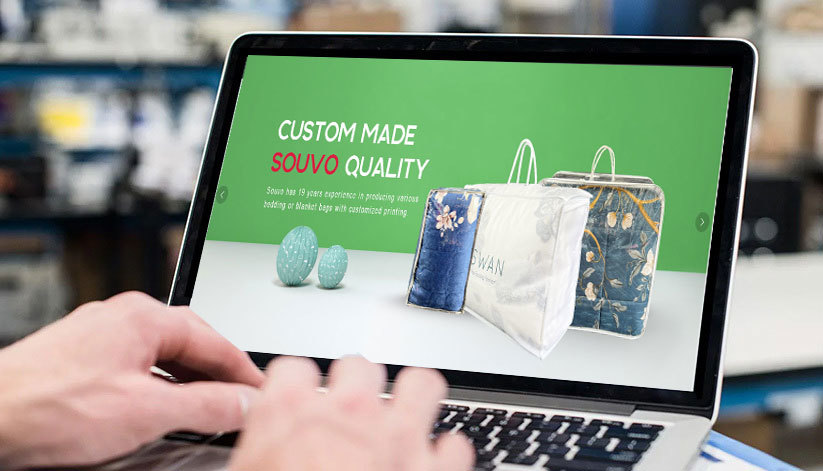NEWS EVENTS
What are the classifications of PVC plastics, and what should be paid attention to in film processing?
2021-11-12
PVC plastic can be roughly divided into two categories: soft pvc and hard pvc. When processing the film, pay attention to the printing of PVC polyvinyl chloride plastic film, the printing ink of PVC polyvinyl chloride plastic film, and the production of PVC polyvinyl chloride plastic film. Bags, etc., the following is a detailed introduction to "the classification of PVC plastics and what to pay attention to when processing films".
1. What is the classification of PVC plastics?
1. Soft pvc
Soft pvc contains softener, which is easy to become brittle and difficult to store, so its scope of use is limited. Common soft pvc is generally used in floors, ceilings and leather surfaces.
2. Rigid pvc
Also known as UPVC, or PVC-U products. Hard PVC does not contain softeners, so it has good flexibility, easy to shape, not easy to be brittle, non-toxic and pollution-free, and has a long storage time, so it has great application value. It has a wide range of applications: pipeline industry, water supply and drainage, flame retardant electrical cable casing, electrical flame retardant switch housing, sockets, profiles, plastic steel, some fenders, bumpers and so on.
2. What should be paid attention to when processing PVC plastic film
1. Printing of PVC polyvinyl chloride plastic film. Because the printing ink of offset printing (also called lithography or pad printing) cannot be compatible with PVC film (that is, the adhesion of offset printing ink to PVC film is poor), the printing plate of letterpress printing will be swelled and corroded by PVC ink, so Usually only two ways of gravure printing and screen printing can be used for printing. Because the PVC film will soften and deform at 60-70 °C, the printing will not match the printing plate, let alone the overprinting accuracy, so the drying temperature of the drying box during printing should not be higher than 60 °C. The dry temperature is preferably 20-30°C. If it is printed with a gravure printing machine of a direct heating drying box, the heating of the drying box cannot be turned on, and only the blower can be turned on.
2. Printing ink for PVC polyvinyl chloride plastic film. What is the principle of printing ink for plastic film? What kind of plastic ink is used for plastic film, that is, the connecting material (resin) of the ink has the same performance as the printed PVC film, so it has affinity and can be combined. it is good. PVC film will swell and dissolve in grease, ketone, aromatic hydrocarbon and halogenated hydrocarbon solvent, so the composite ink of chlorinated polypropylene containing a large amount of grease and ketone cannot be used. When using polyamide-based surface printing ink, it is necessary to beware of the precipitation of the softener in the PVC film, which will cause the ink to reverse and cause film adhesion. In addition, when using special ink for PVC, it should be noted that the amount of ink applied should not be too large, otherwise the PVC film will also be swelled and melted by the cyclohexanone solvent in the ink, resulting in roughening or wrinkling of the film surface.
3. The bag making of PVC polyvinyl chloride plastic film cannot be heat-sealed by direct heat and pulse sealers. If the bag is directly heated, the film surface of the bag will shrink and wrinkle, and the sealing strength is also poor. High-frequency or ultrasonic heat-sealing and heat-cutting machines can be used for heat-sealing processing.
4. The adhesion of PVC polyvinyl chloride plastic shrinkable film, that is, the adhesion of the shrinkable bottle label interface used on many plastic bottles such as beverages, juices, and mineral water. Usually perchloroethylene resin glue is used for bonding. The glue is made by adding 55% to 60% cyclohexanone solvent to 40% to 45% of perchloroethylene resin. Only the amount of glue should not be too large, otherwise the solvent of the glue will dissolve the film and cause adhesion.
5. The PVC film added with plasticizers dioctyl formate, dibutyl formate or dioctyl dioctate and dibutyl acid has many advantages such as softness, high tensile strength, high strength, impact resistance, aging resistance, etc. However, it has a large odor and cannot be packaged in direct contact with food.
Ready to Go SOUVO
Learn why we're different and consult us!


Group 17, Sanwei Village, Chuanjiang Town, Tongzhou District, Nantong City, Jiangsu Province
Mobile version

Copyright © 2022 Nantong Souvo New Material Limited Company All Rights Reserved. Powered by:www.300.cn SEO












